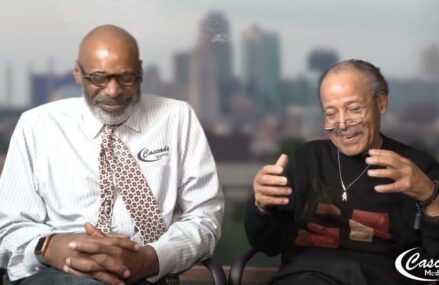By FRANCES D’EMILIO
Italian caretaker Premier Mario Monti cast his vote for a new president whose first job will be to seek the formation of a new government after inconclusive elections, in Rome Thursday, April 18, 2013. Political parties sparred over suitable candidates for the post being vacated by Giorgio Napolitano ahead of the Thursday vote, reflecting divisions that they have been unable to overcome in the more than 50 days since the Feb. 24-25 elections. Napolitano’s term expires next month. (AP Photo/Alessandra Tarantino)
ROME (AP) — Italian lawmakers failed on Thursday to elect the nation’s president during initial rounds of voting, the latest worrisome evidence of the political discord that has thwarted the formation of a government for two months.
President Giorgio Napolitano’s term ends next month, and choosing his successor is viewed as a critical step toward resolving the political impasse that resulted from inconclusive national elections for Parliament in February.
While the presidency is mostly ceremonial, the post has the power to dissolve Parliament and call a new national election, and also tap the candidate with enough support in the legislature to try to form a government.
During Thursday’s vote by both houses of Parliament and regional electors, Franco Marini, a long-time union leader and former Senate president, finished first in the initial ballot, but fell far short of the two-thirds majority needed during the first three rounds of voting.
In round two, the majority of lawmakers cast blank ballots to buy time and allow for a night of consultations to plot a new strategy before voting resumes Friday morning.
Only a simple majority is required by the fourth round of voting, so politicians may simply wait it out until they have a better shot at getting their candidate through.
Italian heads of state, often widely respected and picked to be above the political fray, also work to build national unity, which is now vital as politicians squabble over how to rebuild Italy’s recession-mired economy.
Political parties have sparred for weeks over suitable candidates to succeed Napolitano, but center-left leader Pier Luigi Bersani and center-right leader Silvio Berlusconi had reportedly reached an agreement over Marini’s candidacy on the eve of the vote.
Since Bersani failed to form a government in weeks past, his inability to marshal his divided Democratic Party lawmakers in Parliament to rally behind his candidate further sapped his standing as a major party, and potentially, a national leader.
Many of the dozens of protesters who gathered outside Parliament as the voting was under way lashed out at Bersani for having made a deal with Berlusconi on Marini’s candidacy. “Bersani killer of the Democratic party” read one banner. Others shouted “Rodota, Rodota!” — Stefano Rodota is the candidate of the protest 5-Star Movement.
Bersani acknowledged the troubles, saying late Thursday that his party and Parliament as a whole had to realize that “a new phase” was at hand.
Perhaps most worrying for Italians frustrated over rising taxes and stubborn unemployment, and for financial markets easily spooked by instability, the latest display of political disarray could be a prelude to a quick return to national polls to pick a new Parliament.
“It’s a shame. We would have given a nice signal to the country, if we succeeded in quickly electing a new head of state,” said a centrist leader, Lorenzo Cesa.
He sounded glum about the prospects of warding off the specter of new nationwide elections. “We must work again all together to find a synthesis. If we don’t find it, it’s clear that we will have (national) elections, that we will be into an electoral campaign,” Cesa told Sky TG24 television.
The third largest force in Parliament — the anti-establishment 5-Star Movement led by comic Beppe Grillo — had pushed Rodota, a constitutional law expert. He finished second in the first round of voting and was the top vote-getter in the second round after the blank ballots.
The bickering over the presidency reflects the divisions that lawmakers have been unable to overcome since Italy’s Feb. 24-25 national election, which saw the center-left win control of the lower Chamber of Deputies, but not the Senate.
Bersani has repeatedly rebuffed an offer from media mogul Berlusconi to form a “grand coalition” government in a bid to stave off a new national election.
The new president will sound out political leaders to see who commands enough votes in Parliament to try to form the new government, a process that could take weeks. He will call new elections if no government can be formed.
Napolitano had asked Bersani to see if he could secure the necessary support, but Bersani came up short.



